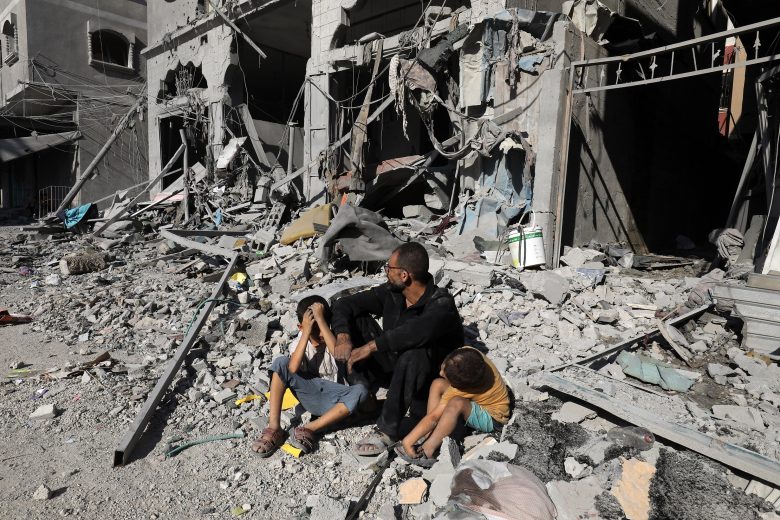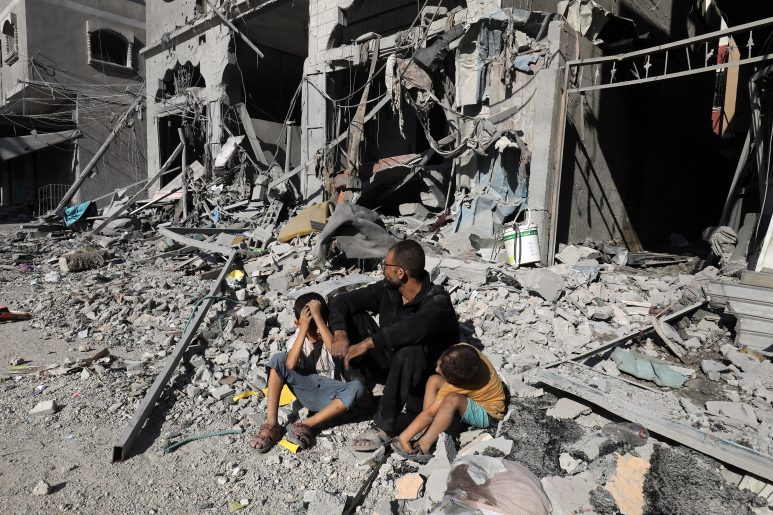A conversation with Ghousoon Bisharat, Editor-in-Chief of +972 Magazine, an online, nonprofit magazine run by Palestinian and Israeli journalists since 2011.
Operating with a team of freelance reporters and analysts, +972 Magazine is a unique online media based in Israel. It presents itself as an independent local media that believes in “accurate and fair journalism that spotlights the people and communities working to oppose occupation and apartheid, and that showcases perspectives often overlooked or marginalized in mainstream narratives.”
The magazine works closely with the Hebrew-language online news site called Local Call (Sikha Mekomit).

+972 Magazine’ refers to the telephone dialing code for Israel and the Occupied Palestinian Territories.
MDI: How is +972 covering the war between Israel and Gaza?
Bisharat: Our audience is international; we are an English language media outlet based in Israel and cover events in Jerusalem, in the West Bank and in the Gaza Strip. +972 reports on the impact of the war in Israel. We try to talk about stories that are not covered by mainstream Israeli and Palestinian media such as the increased violence of settlers in the West Bank, the police repression of anti-war protests in Israel and the political persecution of Palestinian citizens of Israel.
It’s crucial for us to pay attention to the voices still calling for a ceasefire, and for pursuing a political solution to this conflict. Therefore, we published many articles about the families of Israeli hostages calling for peace and a ceasefire and we issued a piece on the new generation in Israel that refuses to serve in the army.
MDI: You praise yourself for putting stories into context, but isn’t that the role of all media?
Bisharat: It is, but not all media do it. We are not a 24/7 outlet. The pace of our media production allows us to take the time to think, to produce long interviews, to delve into issues, to report on what is sometimes called ‘uneventful’ but so important to understand the Israeli-Palestinian conflict. And it works. Our audience has grown considerably since the war in Gaza began. It shows that readers want analysis and stories not only from both sides, but also with clear context and from different perspectives.
MDI: Everybody talks about the scandal linked to UNRWA now, how will you tackle that issue?
Bisharat: We will surely investigate that story from an historical perspective first. We will ask ourselves: why has UNRWA been created? Why is the UNHCR not responsible for Palestinian refugees, like in other parts of the world? Why is this scandal popping up now? Is it connected to the International Court of Justice case issued days before?
MDI: What was the most difficult decision you made as Chief Editor when the attack on 7 October happened?
Bisharat: There were many difficult decisions to be made. The whole coverage of the attack and its aftermath is difficult. Talking about the context of the war and the disproportionate Israeli assault on Gaza without legitimizing the attack perpetrated by Hamas was and is difficult. It’s like walking on a tightrope.
We are a small team and deciding together on priorities is an ongoing challenge and a difficulty we face every day. Area C in the West Bank is an important context to report on for us. While all eyes are on Gaza, we want to make sure that this part of land and its population are not forgotten. We also put an emphasis on the political persecution taking place in full force against the Palestinian citizens of Israel and Israeli-Jewish left wing political activists.
MDI: Can you relate one of +972 most popular stories on this war?
Bisharat: Our most-read story is an investigative report by Yuval Abraham on Israel’s bombardment of Gaza. It focuses on Israel’s permissive air strikes on non-military targets and the use of an artificial intelligence system that enabled the Israeli army to carry out its deadliest war on Gaza. Another popular story was written by Ruwaida Amer from the city of Khan Younis, in Gaza. It portrays the rescue workers in Gaza and how they suffer from the trauma of not being unable to save the people in need.
MDI: Are Israelis exposed to your stories?
Bisharat: We have Israeli readers, but not many. The mainstream Israeli media decided to keep its audience focused on the atrocities of the 7/10 attacks. They avoid showing the suffering of the Palestinians. I recommend you listen to this good podcast to understand the Israeli media now. Few of them today offer fair and balanced coverage.
Disclaimer:
The views and opinions expressed in this article are solely those of the author and do not reflect the official policy or position of the Media Diversity Institute. Any question or comment should be addressed to [email protected]

